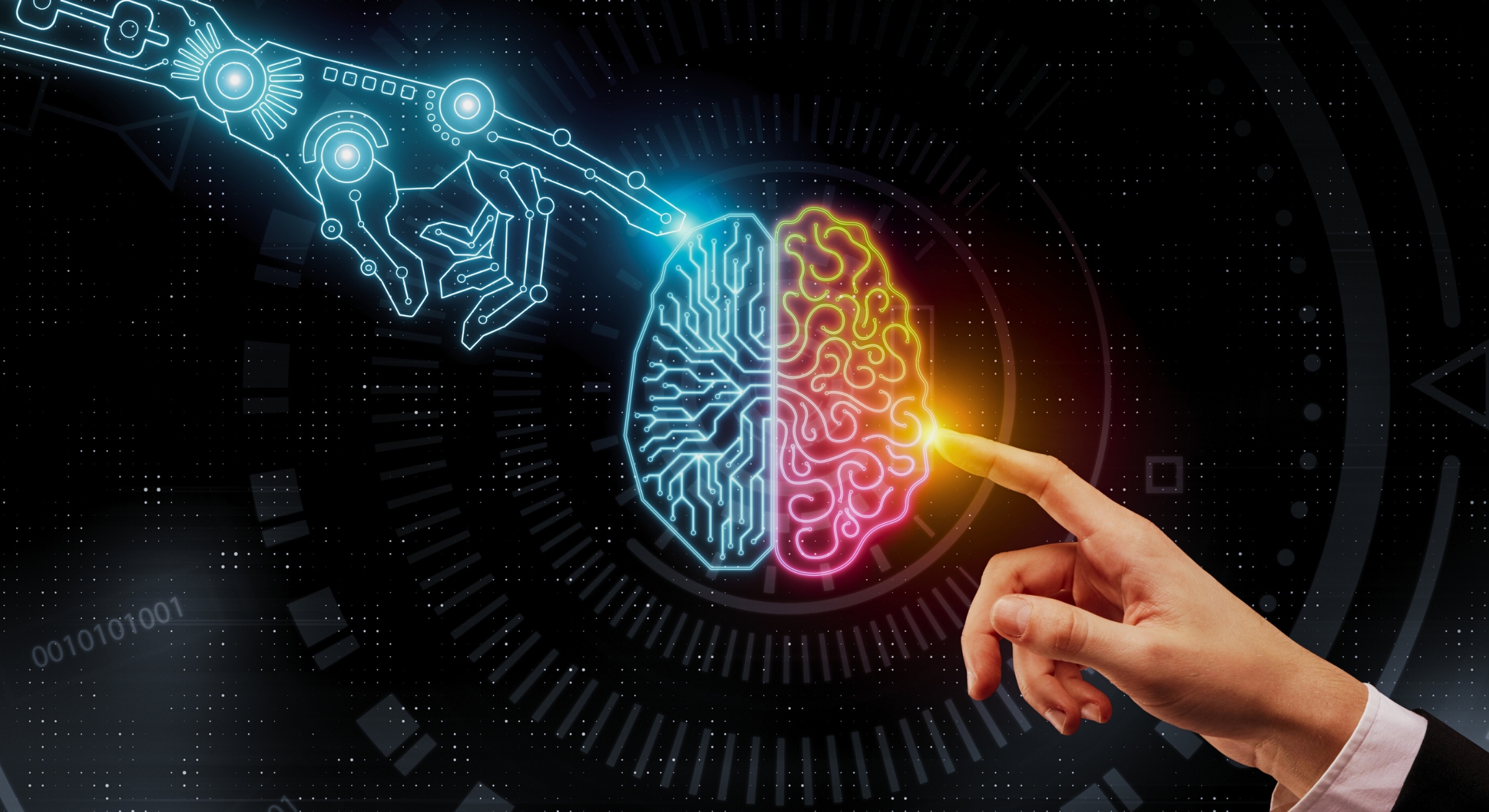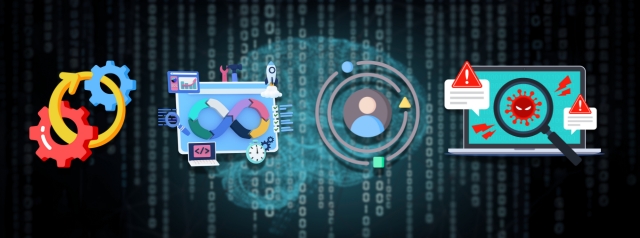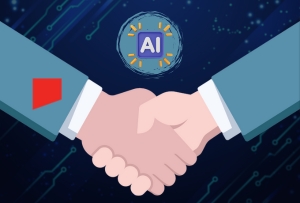At Experion, we bring your vision to life with cutting-edge AI solutions that redefine software development. Artificial Intelligence (AI) is transforming the way we design, build, and use software. The advent of AI-driven solutions has not only accelerated development processes but also introduced unprecedented capabilities in customization, efficiency, and user experience. Whether you’re an entrepreneur or a multinational corporation, embracing AI software development can redefine your business operations.
The Growing Demand for AI-Driven Solutions in Australia
Australia is experiencing a surge in demand for AI-driven solutions as businesses across diverse sectors recognize the transformative power of artificial intelligence in driving innovation and operational efficiency. From streamlining processes to unlocking new growth opportunities, the applications of AI are reshaping how companies approach challenges. Organizations are increasingly partnering with leading AI software development companies to craft custom AI solutions that address their specific business needs. This growing reliance on AI underscores its critical role in helping Australian businesses remain competitive and thrive in an ever-evolving global market.
At Experion, we understand these unique challenges and opportunities. Our expertise in AI integration ensures seamless adoption of cutting-edge solutions tailored specifically for Australian businesses. By leveraging advanced tools, frameworks, and technologies, we deliver solutions that drive measurable impact, enabling organizations to harness the full potential of AI-driven innovation.
Why AI is a Game-Changer in Software Development
AI is transforming software development in profound ways. By automating repetitive and mundane tasks, it allows developers to concentrate on creative problem-solving and strategic initiatives. Through capabilities like predictive analytics, intelligent code completion, and real-time error detection, AI has redefined the efficiency and quality of the development process. Furthermore, AI-powered tools facilitate rapid prototyping and innovation by providing actionable insights drawn from large datasets. This ensures that developers can create smarter, more responsive applications that adapt seamlessly to user needs. As a result, AI has become indispensable in enhancing productivity, driving innovation, and delivering high-performance software solutions that cater to a dynamic digital landscape.
AI has revolutionized the software development landscape by automating repetitive tasks, enhancing decision-making processes, and enabling the creation of intelligent systems. From automating code generation to providing predictive analytics, AI empowers developers to focus on high-value tasks while ensuring superior quality and faster delivery.
AI is transforming software development in profound ways. By automating repetitive and mundane tasks, it allows developers to concentrate on creative problem-solving and strategic initiatives. Through capabilities like predictive analytics, intelligent code completion, and real-time error detection, AI has redefined the efficiency and quality of the development process. Furthermore, AI-powered tools facilitate rapid prototyping and innovation by providing actionable insights drawn from large datasets. This ensures that developers can create smarter, more responsive applications that adapt seamlessly to user needs. As a result, AI has become indispensable in enhancing productivity, driving innovation, and delivering high-performance software solutions that cater to a dynamic digital landscape.
AI has revolutionized the software development landscape by automating repetitive tasks, enhancing decision-making processes, and enabling the creation of intelligent systems. From automating code generation to providing predictive analytics, AI empowers developers to focus on high-value tasks while ensuring superior quality and faster delivery.
What is AI Software Development?

AI software development involves the seamless integration of artificial intelligence into software solutions to enable automation, adaptive learning, and intelligent decision-making capabilities. This transformative process utilizes sophisticated algorithms, advanced data analysis, and machine learning models to design systems that not only perform tasks but also evolve over time. These intelligent systems empower businesses by offering solutions that continuously adapt to changing environments and requirements, ensuring scalability, efficiency, and innovation across diverse applications.
Artificial Intelligence (AI) has become the cornerstone of technological advancements, transforming industries and redefining how businesses approach challenges. AI software development has emerged as a critical aspect of this revolution, offering tools and techniques that accelerate innovation, improve efficiency, and deliver unparalleled user experiences. Whether through a custom AI software development project or by collaborating with a leading AI software development company, businesses today are harnessing the power of AI to stay ahead in a competitive market.
How AI Integrates with Software Development
AI integrates with software development by leveraging advanced tools, frameworks, and algorithms to enhance productivity, innovation, and scalability. At Experion, we specialize in crafting solutions that seamlessly blend AI into the development lifecycle, ensuring that businesses stay ahead in a competitive landscape. It transforms traditional workflows into intelligent systems capable of adapting to dynamic needs. With AI, developers can automate tasks such as code generation, bug detection, and testing, which significantly reduces development time and improves accuracy. Moreover, AI-powered analytics provide insights into user behavior, enabling the creation of more intuitive and personalized applications. By optimizing resource allocation and enabling predictive capabilities, AI integration ensures that software solutions are not only efficient but also future-ready, meeting the demands of modern users and businesses alike.
Experion takes this integration to the next level by incorporating its expertise in crafting intelligent, adaptable systems that empower businesses. Our commitment to innovation ensures that every solution we deliver meets the highest standards of quality and functionality, helping businesses achieve their goals efficiently and effectively.
Custom AI Software Development in Australia
Custom AI software development has become a focal point for Australian businesses aiming to address specific challenges. By collaborating with leading AI software development companies, organizations can design and implement tailored solutions that align with their strategic goals. These bespoke solutions enable seamless integration, scalability, and long-term success in a competitive market.
AI Technologies Commonly Used in Software Development
Machine Learning
Machine learning is a subset of artificial intelligence that enables software to learn and adapt without explicit programming. By leveraging algorithms and statistical models, machine learning identifies patterns in data, allowing systems to make predictions or decisions. Common applications include recommendation engines, fraud detection systems, and predictive analytics, all of which enhance operational efficiency and customer experience.
Natural Language Processing (NLP)
Natural Language Processing (NLP) centers on enabling computers to understand and interact with human language. It enables software to understand, interpret, and respond to text or voice input in meaningful ways. From chatbots and virtual assistants to sentiment analysis and language translation, NLP technologies enhance communication and accessibility in software systems.
Computer Vision
Computer vision empowers software to interpret and analyze visual data from the physical world. This technology enables systems to recognize patterns, detect objects, and process images or videos. Applications include facial recognition, autonomous vehicles, medical imaging analysis, and quality control in manufacturing. These capabilities drive innovation in industries reliant on visual data processing.
AI-Powered Software Development Tools
The integration of AI-powered tools has revolutionized the software development lifecycle, enabling developers to achieve unmatched efficiency, precision, and innovation. These tools empower teams to streamline processes such as coding, testing, and debugging, while enabling continuous integration and delivery of high-quality applications. By leveraging AI, businesses can reduce time-to-market, minimize errors, and enhance overall product quality, ensuring a competitive edge in a fast-paced industry.
Overview of Popular AI Tools
AI tools like TensorFlow, PyTorch, and IBM Watson have become indispensable assets for modern software development. TensorFlow and PyTorch offer extensive frameworks for building machine learning and deep learning models. These frameworks provide developers with flexibility and scalability, enabling them to create systems that adapt and evolve based on real-time data. TensorFlow’s TensorBoard and PyTorch’s TorchServe further simplify the visualization and deployment of models.
IBM Watson extends the power of AI with its suite of APIs designed for natural language processing, computer vision, and predictive analytics. For instance, Watson’s NLP services facilitate seamless communication through chatbots and voice assistants, while its visual recognition capabilities power solutions in retail, healthcare, and security industries. Together, these tools enable businesses to harness the full potential of AI for building custom solutions that align with their strategic objectives.
AI in Testing and Debugging
AI is revolutionizing software testing and debugging, offering solutions that significantly reduce manual effort while enhancing accuracy and speed. Tools like Testim and Applitools utilize machine learning algorithms to create dynamic test scripts that adapt to application changes in real-time. These intelligent systems not only detect errors but also predict potential vulnerabilities based on historical data, providing actionable insights to prevent recurring issues.
Testim’s self-healing capabilities, for instance, allow automated tests to adjust dynamically to UI changes, reducing the need for manual intervention. Similarly, Applitools enhances visual testing by identifying discrepancies in UI elements across different devices and platforms, ensuring a consistent user experience. By incorporating AI-driven testing tools, developers can optimize workflows, enhance software quality, and accelerate the deployment of reliable applications tailored to user needs.
The integration of AI-powered tools has revolutionized the software development lifecycle, providing developers with unparalleled efficiency, precision, and innovation. These tools empower teams to create, test, and refine applications with minimal effort, drastically reducing time-to-market and enhancing overall product quality.
At Experion, we utilize these cutting-edge tools to deliver tailored solutions that align with our clients’ unique business objectives, ensuring exceptional outcomes and long-term success.
The Impact of AI Software Development

Accelerating Development Processes
AI software development has redefined the way applications are created and optimized. By automating repetitive tasks, such as code generation and debugging, AI tools allow developers to focus on innovation and problem-solving. This acceleration in development processes not only reduces time-to-market but also ensures higher accuracy and reliability.
Advanced AI frameworks provide predictive analytics that identify potential roadblocks, enabling proactive resolution and smoother workflows. This capability empowers development teams to meet tight deadlines without compromising quality. Moreover, by leveraging AI-powered project management tools, organizations can track progress, allocate resources efficiently, and maintain seamless collaboration across teams.
Improving Code Quality and Security
AI-powered solutions enhance code quality and security by proactively identifying vulnerabilities and suggesting improvements. Tools like SonarQube and DeepCode utilize machine learning to analyze codebases, detect potential threats, and recommend optimizations. This proactive approach minimizes errors and ensures compliance with best practices, helping businesses deliver robust software solutions.
By integrating AI into security protocols, organizations can automate threat detection and response, significantly reducing the risk of cyberattacks. Machine learning models continuously learn from new data, adapting to emerging security threats and ensuring ongoing protection for critical systems.
Personalizing User Experience
AI software development services enable businesses to create highly personalized user experiences. By leveraging AI-driven analytics and algorithms, developers can design applications that adapt to user preferences, behaviors, and needs. This level of customization enhances customer satisfaction and drives engagement, making personalization a key differentiator in the digital landscape.
AI enables real-time personalization, such as dynamic content recommendations, location-based services, and behavior-driven interfaces. These capabilities allow businesses to foster deeper connections with their customers, driving loyalty and repeat engagement.
Real-world Examples of AI-enhanced User Interfaces
Industry leaders like Netflix and Spotify have set benchmarks in AI-enhanced user interfaces. Netflix’s recommendation engine analyzes user viewing habits to suggest content tailored to individual tastes, while Spotify’s AI algorithms curate playlists based on listening patterns. These examples illustrate how AI custom software development can transform user experiences across industries.
Retail platforms, such as Amazon, leverage AI to personalize product recommendations, while healthcare applications use AI-powered interfaces to provide tailored health insights and recommendations. These examples showcase the versatility and impact of AI-enhanced interfaces in diverse fields.
Challenges in AI Software Development
While AI software development offers numerous benefits, it also comes with its own set of challenges:
- Data Dependency and Quality Issues
AI systems are only as good as the data they are trained on. Poor-quality data or insufficient datasets can lead to inaccurate predictions, biased results, and ineffective performance. Ensuring data quality involves cleaning, organizing, and validating datasets—a time-consuming but crucial task.
- High-Quality Data: High-quality datasets must be comprehensive, accurate, and up-to-date to enable reliable AI model training. Without this, AI systems can produce flawed outputs or fail entirely.
- Data Diversity: Diverse and representative datasets are necessary to avoid biases in AI models. For example, an AI trained on a dataset that lacks diversity in gender or ethnicity might perpetuate discriminatory practices.
- Data Management Strategies: Businesses must invest in robust data collection, preprocessing, and storage solutions to maintain data integrity. Automated tools and advanced data pipelines can streamline this process.
- Validation and Preprocessing: Rigorous validation techniques, such as cross-validation, and preprocessing steps like normalization and feature selection, are essential for creating models that generalize well to unseen data.
- Ethical and Regulatory Concerns
The ethical implications of AI adoption and the complex regulatory environment add layers of responsibility for developers and businesses.
- Privacy and Security: AI systems often require vast amounts of personal data, making privacy a primary concern. Developers must implement encryption, anonymization, and secure storage to protect sensitive information.
- Algorithmic Bias: Bias in training data can lead to discriminatory AI outputs, which may harm users or communities. Ensuring fairness requires diverse datasets, unbiased algorithms, and regular audits.
- Regulatory Compliance: Adhering to laws like GDPR (General Data Protection Regulation) and CCPA (California Consumer Privacy Act) is mandatory. These regulations dictate how data is collected, stored, and processed, demanding transparency from businesses.
- Explainability: Many AI models, particularly those based on deep learning, are frequently described as “black boxes” because their intricate decision-making processes are difficult to understand, explain, or interpret. Ethical AI systems should offer explainability to ensure users understand how decisions are made.
- Accountability: Establishing clear accountability for AI outcomes is critical. This involves creating guidelines to address potential misuse, unintended consequences, and ethical dilemmas.
- Integration with Legacy Systems
Introducing AI into existing infrastructures, especially legacy systems, poses technical and operational challenges.
- Complex Architecture: Legacy systems often lack the scalability and modularity needed to accommodate modern AI solutions. Organizations must re-engineer parts of their architecture to enable smooth integration.
- Data Compatibility: Ensuring that legacy systems can provide data in formats suitable for AI models is another challenge. Data transformation and cleaning processes are often required for compatibility.
- Infrastructure Upgrades: Older systems may lack the computational power needed for AI workloads, such as processing large datasets or running intensive machine learning models. This necessitates hardware upgrades, such as adopting cloud-based solutions or edge computing.
- Retraining Workforce: Employees accustomed to traditional workflows may need training to operate and maintain AI-integrated systems effectively. This can involve significant time and resource investments.
- Cost Considerations: Integrating AI with legacy systems often requires upfront investments in infrastructure, tools, and personnel. However, adopting a phased approach with modular AI solutions can help mitigate costs while achieving incremental benefits.
Future Trends in AI Software Development

The Potential of Quantum Computing in AI Software Development
Quantum computing represents a groundbreaking advancement in computational power, offering the ability to perform calculations that are currently infeasible for classical computers. When applied to artificial intelligence (AI), quantum computing has the potential to revolutionize how data is processed, analyzed, and leveraged, driving innovation across numerous fields.
Key Areas of Transformation
- Optimization Problems: Quantum computing excels at solving complex optimization problems by simultaneously evaluating multiple potential solutions. This capability can drastically improve areas like logistics, supply chain management, and financial portfolio optimization, where traditional methods struggle with scale and complexity.
- Cryptography and Security: Quantum computing has profound implications for cryptography. While it can potentially break existing encryption standards, it also enables the creation of quantum-resistant algorithms and ultra-secure communication protocols, safeguarding sensitive AI systems and user data.
- Large-Scale Data Processing: AI models rely on vast amounts of data, often requiring extensive computational resources for training and inference. Quantum computers can handle these tasks exponentially faster by processing data in parallel at a scale impossible for classical systems.
Quantum Algorithms Enhancing Machine Learning Tasks
Quantum computing is expected to enhance core machine learning (ML) tasks such as clustering, classification, and regression. These advancements stem from quantum algorithms like:
- Quantum Approximate Optimization Algorithm (QAOA): QAOA accelerates optimization tasks central to ML, such as feature selection, hyperparameter tuning, and neural network optimization.
- Quantum Support Vector Machines (QSVM): QSVMs improve classification and regression by leveraging quantum properties to analyze large, high-dimensional datasets more efficiently than classical counterparts.
- Quantum Principal Component Analysis (QPCA): QPCA can decompose complex datasets into their principal components exponentially faster, enhancing dimensionality reduction and making algorithms more computationally efficient.
These quantum algorithms allow machine learning models to process intricate datasets at unmatched speeds, unlocking capabilities such as real-time fraud detection, dynamic pricing, and real-time personalization.
Future Possibilities and Innovations at the Intersection of AI and Quantum Computing
The combination of AI and quantum computing has the potential to redefine industries by addressing previously insurmountable challenges and opening new frontiers in innovation:
- Real-Time Language Translation: Quantum-enabled AI systems could process and analyze multiple languages simultaneously, delivering instant and highly accurate translations across a broad spectrum of languages and dialects. This could revolutionize global communication and accessibility.
- Ultra-Efficient Supply Chain Management: Quantum computing can optimize supply chains by processing vast amounts of logistical data in real-time. This includes predicting demand, optimizing routes, and managing inventory with unparalleled accuracy, reducing costs and enhancing efficiency.
- Breakthroughs in Scientific Research: Quantum-AI hybrids could accelerate discoveries in fields like materials science, energy research, and genomics. By simulating complex molecular interactions, these systems can lead to innovative solutions for challenges such as renewable energy production and sustainable agriculture.
- Climate Modeling and Environmental Solutions: Precise climate models enabled by quantum computing can provide actionable insights into mitigating climate change. AI-quantum hybrids can analyze vast environmental datasets to predict natural disasters, model carbon emission impacts, and optimize renewable energy deployment.
- Advanced Drug Discovery: Quantum-AI systems can simulate molecular structures and interactions at an unprecedented scale, accelerating drug discovery and personalized medicine. This has the potential to drastically reduce the time and cost of developing life-saving treatments.
- Next-Generation Financial Systems: In the financial sector, quantum computing can power real-time market analysis, risk assessment, and fraud detection. AI-quantum systems could create predictive models that adapt dynamically to global economic trends, providing businesses with a significant competitive edge.
The Transformative Power of AI in Software Development
AI continues to transform software development by introducing tools and techniques that make processes faster, smarter, and more efficient. From predictive analytics to intelligent automation, the integration of AI is reshaping the development landscape, enabling businesses to innovate and thrive.
How Experion Helps You in AI Software Development

Experion stands out as a trusted partner in delivering cutting-edge AI software development services. With expertise in a custom AI software development, we work closely with clients to design, build, and deploy intelligent solutions tailored to their unique needs. As one of the leading AI software development companies in Australia, we leverage advanced technologies to drive measurable business outcomes. Our comprehensive approach ensures seamless integration, scalability, and long-term success for every project we undertake.
By collaborating with Experion, businesses gain access to a team of seasoned experts dedicated to transforming ideas into reality. Our focus on innovation and customer-centricity ensures that every solution we deliver exceeds expectations and drives tangible results.
Conclusion
AI software development is no longer a futuristic concept but a critical driver of modern business transformation. By leveraging intelligent tools and frameworks, organizations can accelerate innovation, enhance efficiency, and deliver exceptional user experiences. From personalized applications to robust security measures, AI has the power to redefine the possibilities of software development. However, navigating challenges like data dependency, ethical considerations, and legacy system integration requires expertise and strategic planning.
Partnering with experienced AI software development companies, like Experion, ensures access to cutting-edge technologies and tailored solutions. As industries evolve and quantum computing reshapes AI capabilities, embracing this transformative force will be essential for businesses striving to remain competitive and innovative in an ever-changing digital landscape.
Key Takeaways
- Accelerated Development: AI software development streamlines processes like coding, debugging, and testing, reducing time-to-market and increasing efficiency.
- Improved Code Quality and Security: AI tools proactively identify vulnerabilities, ensure compliance with best practices, and protect systems from emerging threats.
- Personalized User Experiences: Leveraging AI enables businesses to create highly tailored applications that enhance customer satisfaction and engagement.
- Data Management Challenges: High-quality, unbiased datasets are critical for effective AI implementation, requiring robust data management strategies.
- Navigating Ethical and Regulatory Concerns: Addressing issues like algorithmic bias, data privacy, and compliance is essential for building trustworthy AI systems.
- Integration with Legacy Systems: Careful planning and modular approaches are needed to seamlessly incorporate AI into existing infrastructures.
- Future Trends: Quantum computing promises revolutionary advancements in AI, offering exponential speed and capabilities in processing complex data.
- Partnering for Success: Collaborating with experienced AI software development companies ensures innovative, scalable, and impactful solutions.
At Experion, we are committed to driving innovation and excellence in AI software development. By combining cutting-edge technologies with a client-first approach, we ensure every solution is tailored to meet unique business needs. Partner with us to unlock the transformative power of AI and achieve sustainable growth in an ever-evolving digital landscape.

